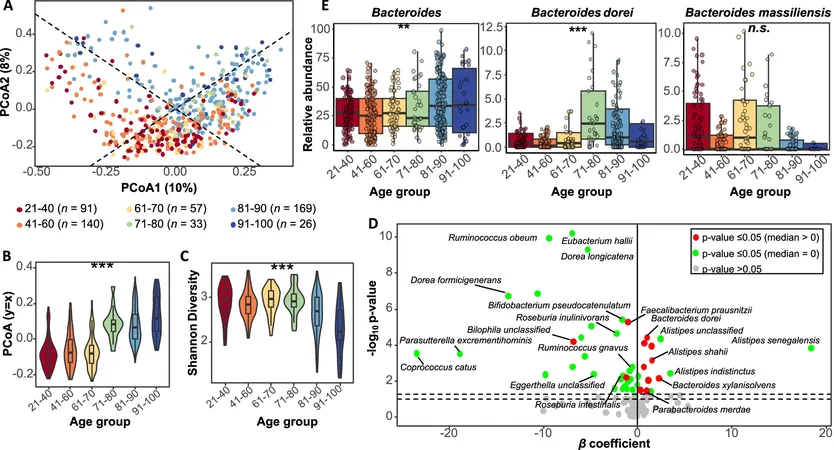
Breakthrough Gene Therapy Shields Rats from Debilitating Motor Neuron Disease
2024-11-13
Author: Wei Ling
Breakthrough Gene Therapy Shields Rats from Debilitating Motor Neuron Disease
In a groundbreaking study, researchers at the University of Wisconsin–Madison are unveiling a potential game-changer in the fight against hereditary neurodegenerative diseases, utilizing advanced gene therapy techniques. This innovative approach, harnessing the power of CRISPR-Cas9 genome editing technology, shows promising prospects for treating rare yet devastating motor neuron diseases in humans.
Understanding Hereditary Spastic Paraplegia (HSP)
Hereditary spastic paraplegia (HSP) represents a cluster of movement disorders marked by progressive weakness and stiffness in the legs due to specific inherited genetic mutations. These rare conditions often lead to severe physical limitations, severely impacting the quality of life and frequently resulting in the need for a wheelchair.
The Rat Model and Genetic Mutation
Historically, developing effective treatments for HSP has been fraught with challenges, primarily due to the difficulty in replicating the disease’s symptoms and progression in animal models. However, this changed dramatically in 2022 when a dedicated team of UW-Madison scientists, led by the acclaimed Professor Anjon Audhya, successfully established a rat model that carried a genetic mutation linked to HSP.
Gene Therapy Breakthroughs for HSP
The mutation affects the Trk-fused gene, which plays a crucial role in the transportation of proteins across neurons. Disruption in this process, observed in both patients and the rat model, leads to the debilitating symptoms associated with HSP, including muscle stiffness and weakness.
Building on their success, Audhya and his team developed a promising gene therapy treatment that protects rats carrying the HSP mutation from showing any symptoms of the disease. Their method involved utilizing a genetically engineered virus designed to deliver a healthy version of the Trk-fused gene directly to the neurons, compensating for the flawed mutation. Remarkably, when this treatment was administered to day-old rats, they exhibited unprecedented resilience.
“These animals never developed the disease,” Audhya confirmed, “allowing them to live for many more weeks without any signs of the condition. This demonstrates the efficacy of gene therapy in combating symptoms of the disease.”
Understanding the Neuronal Impact of HSP
The success of this gene therapy approach permits the proper expression of the non-mutated Trk-fused gene within the neurons, enhancing protein transport and thereby preventing the onset of disease. The team's findings were recently published in the prestigious journal *Proceedings of the National Academy of Sciences*.
Moreover, the research unveiled a critical insight into HSP: it is primarily a disorder affecting neurons rather than other brain cells. This was illustrated when the researchers attempted similar therapies on astrocyte cells; those subjects still manifested symptoms, underscoring the specificity of the neuronal impact of the disease.
Future Directions and Hope for Patients
Audhya and his colleagues are not slowing down; they are embarking on follow-up studies to create additional animal models targeting a different, more common genetic mutation in HSP patients. Plans are also underway for injecting therapeutics via the spinal cord, which more closely mimics potential human treatment protocols.
Securing funding for studies on rare diseases like HSP poses significant challenges. However, Audhya is grateful for the invaluable support from organizations such as the Blu Genes Foundation, The Lilly and Blair Foundation, and the CureSPG4 Foundation, which have been pivotal in advancing their research towards a potential cure.
Conclusion: A Bright Future Ahead
“We ultimately aspire for our preclinical gene therapy initiatives to pave the way for clinical trials in patients in the coming years,” Audhya noted, shining a light of hope for those affected by HSP.
This innovative research marks a significant stride in the realm of gene therapy, with the potential to transform treatment pathways for patients suffering from hereditary motor neuron diseases. The journey towards effective human therapies is just beginning, but the light at the end of the tunnel is growing brighter.




 Brasil (PT)
Brasil (PT)
 Canada (EN)
Canada (EN)
 Chile (ES)
Chile (ES)
 España (ES)
España (ES)
 France (FR)
France (FR)
 Hong Kong (EN)
Hong Kong (EN)
 Italia (IT)
Italia (IT)
 日本 (JA)
日本 (JA)
 Magyarország (HU)
Magyarország (HU)
 Norge (NO)
Norge (NO)
 Polska (PL)
Polska (PL)
 Schweiz (DE)
Schweiz (DE)
 Singapore (EN)
Singapore (EN)
 Sverige (SV)
Sverige (SV)
 Suomi (FI)
Suomi (FI)
 Türkiye (TR)
Türkiye (TR)